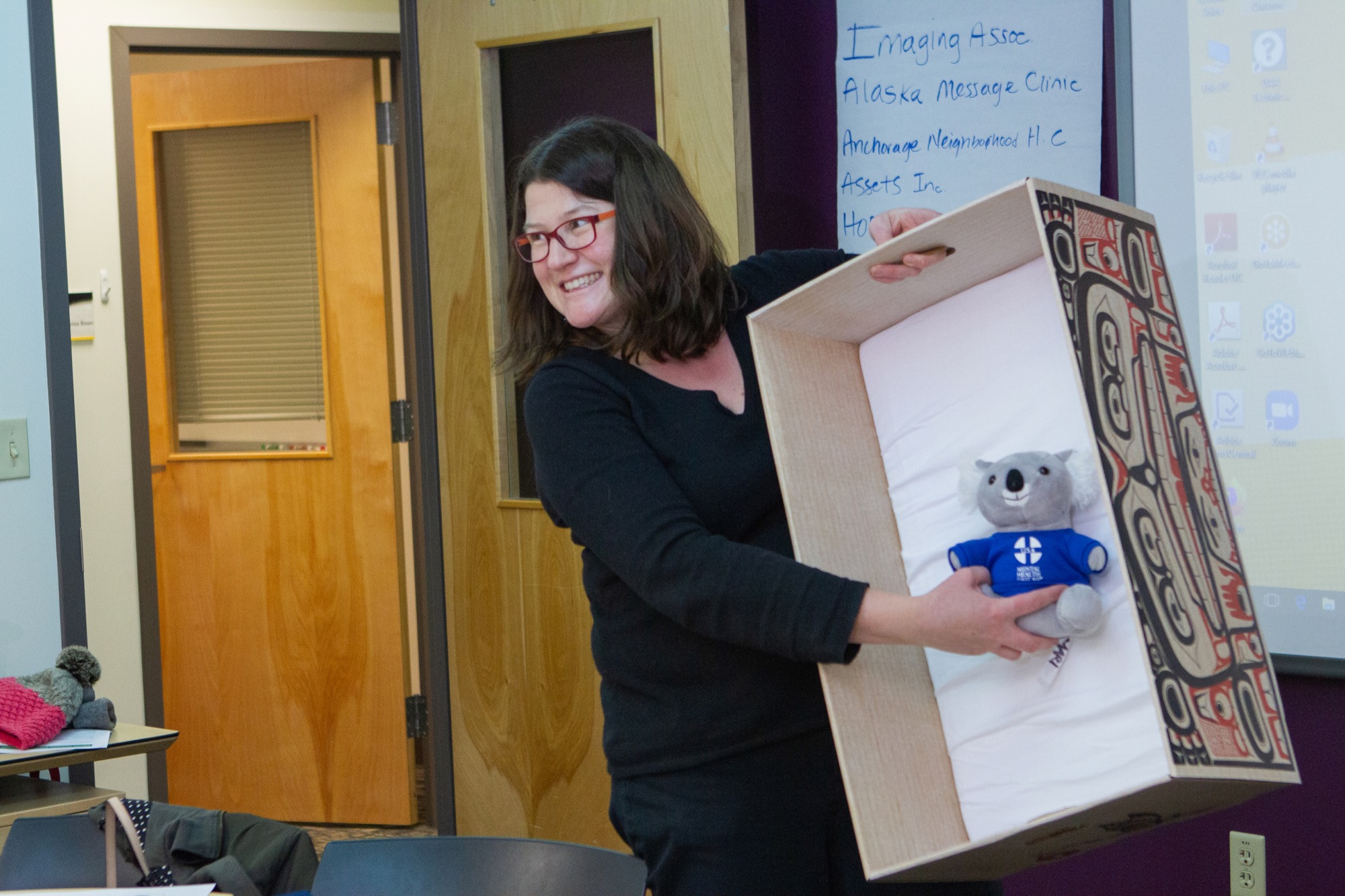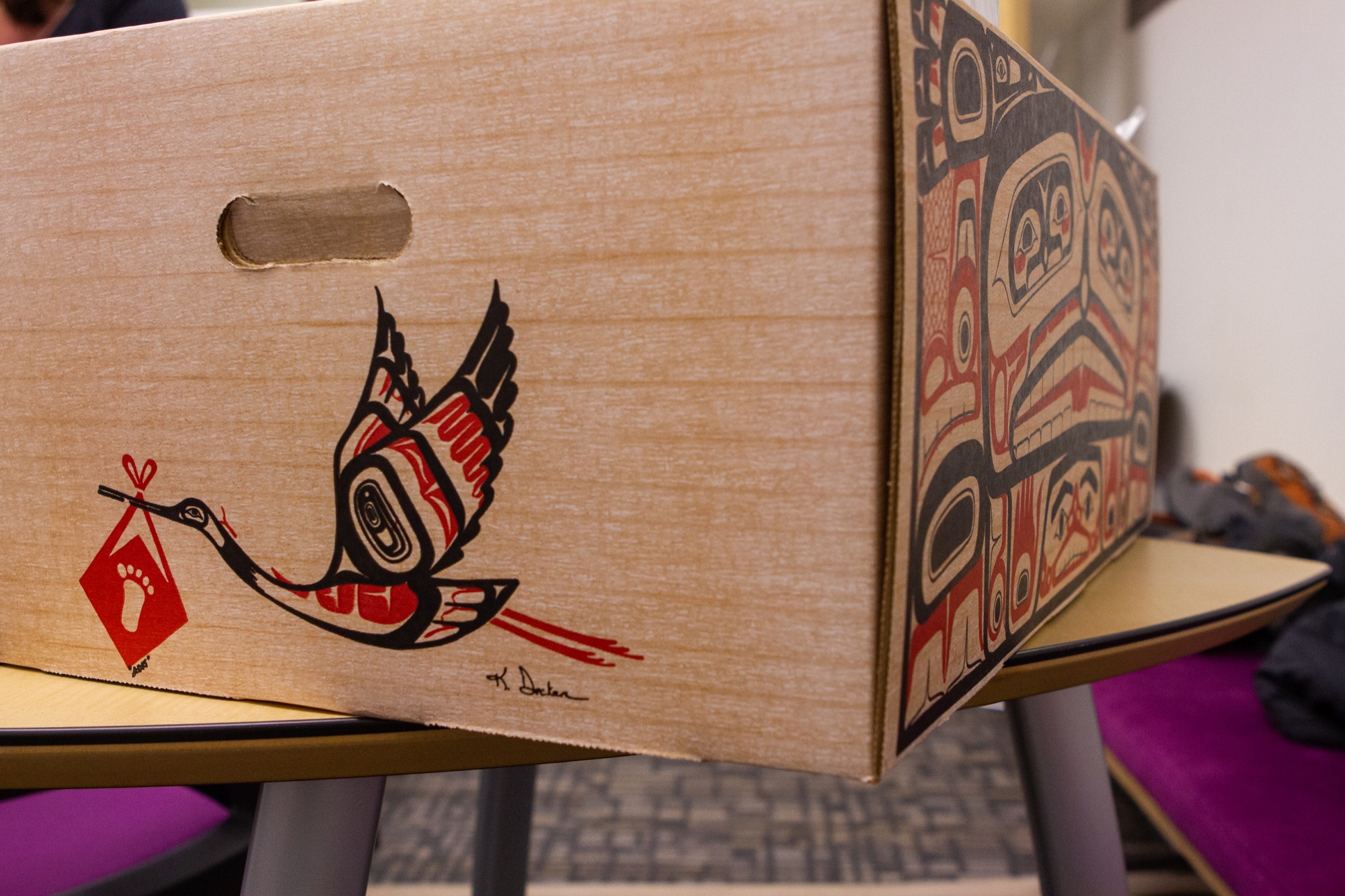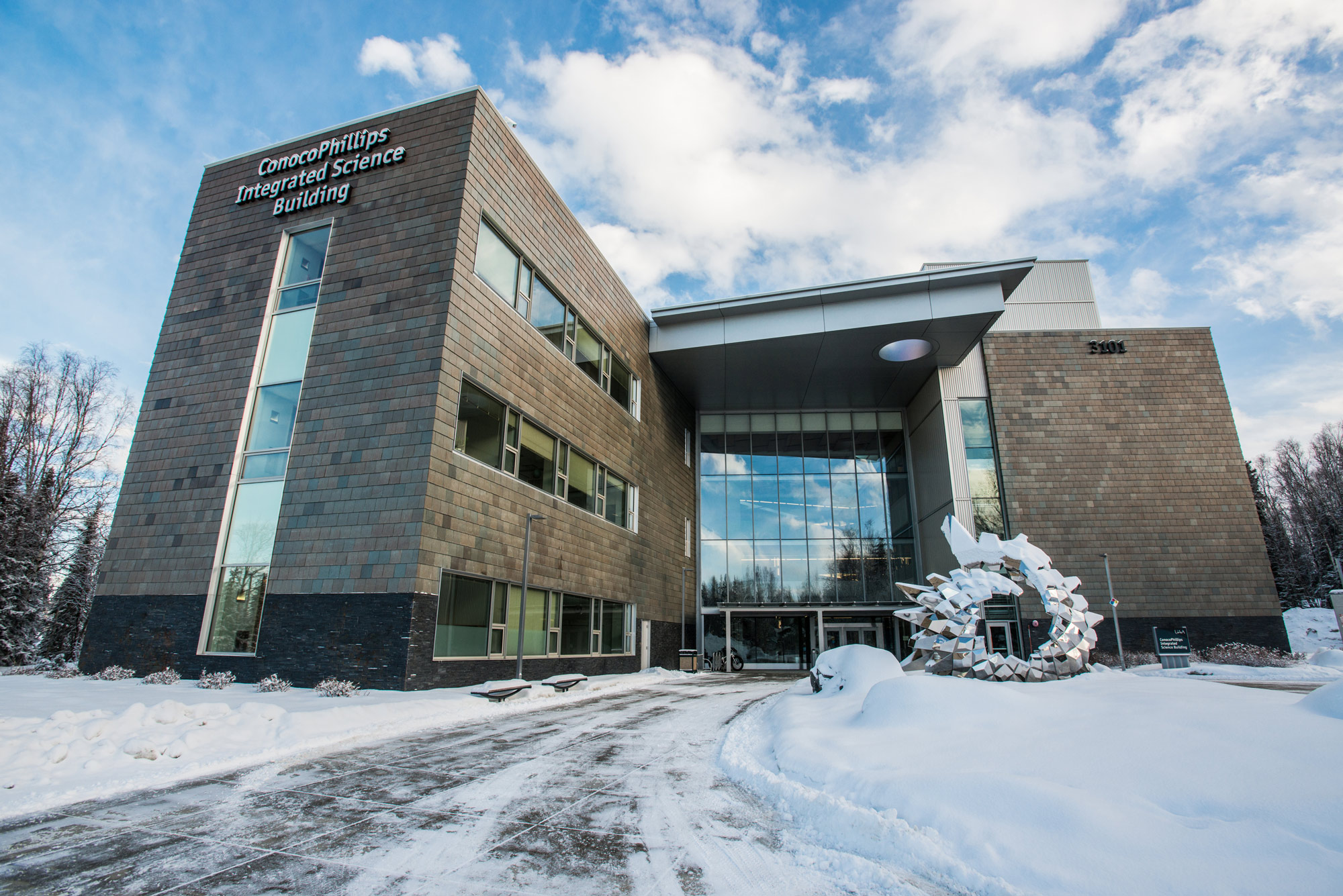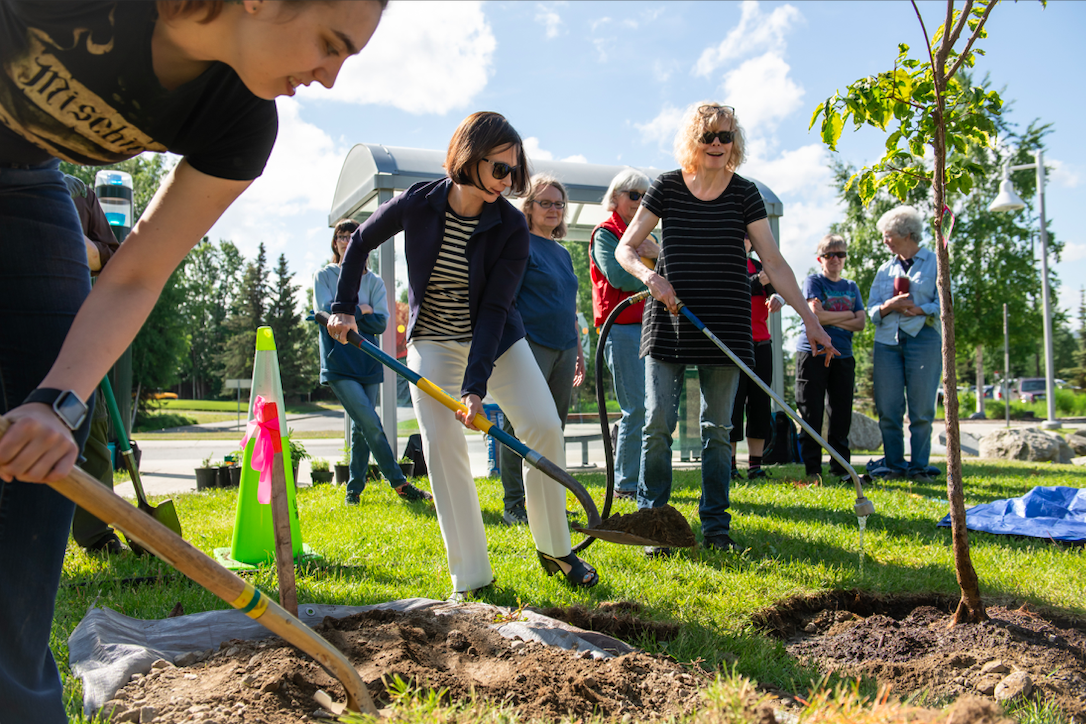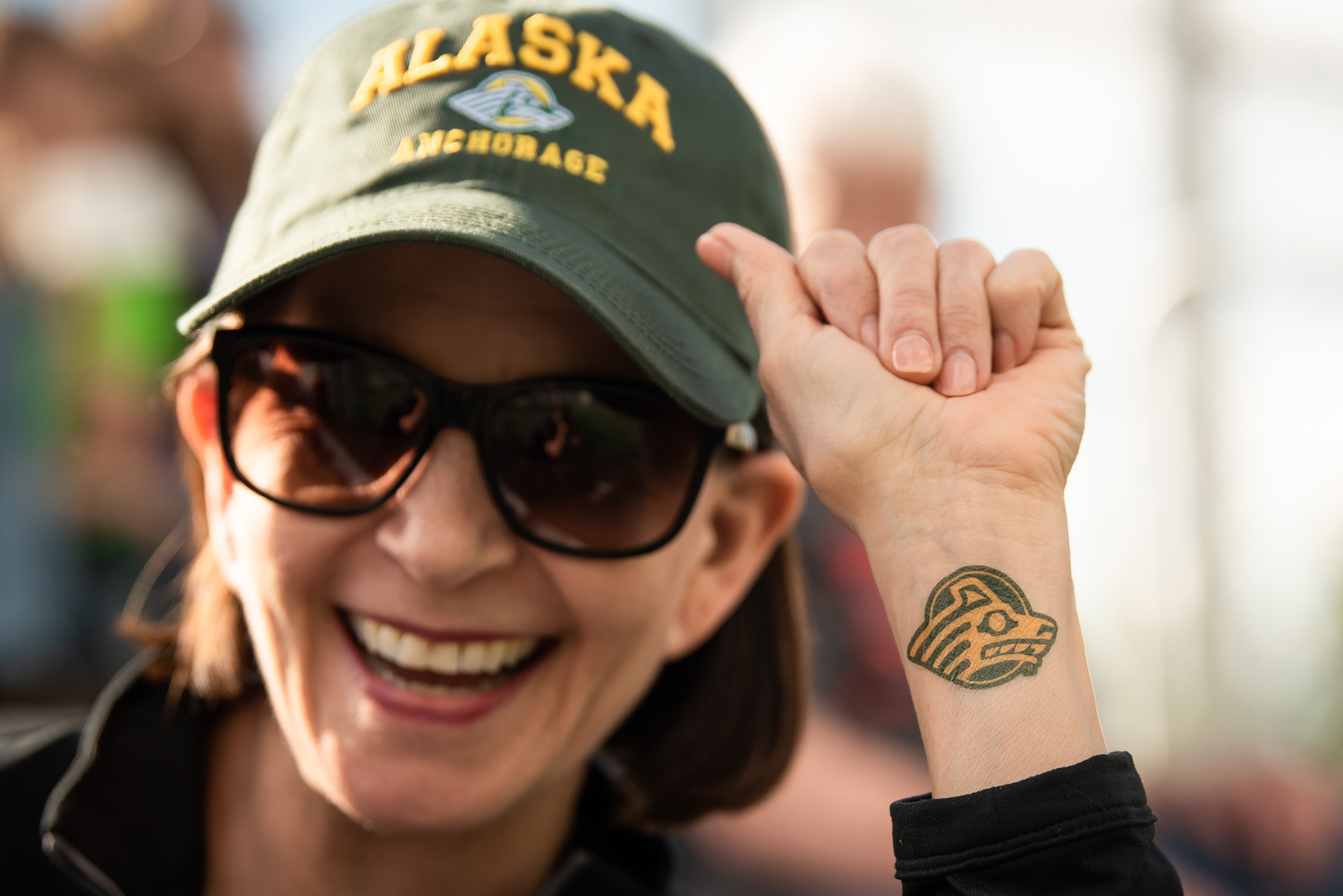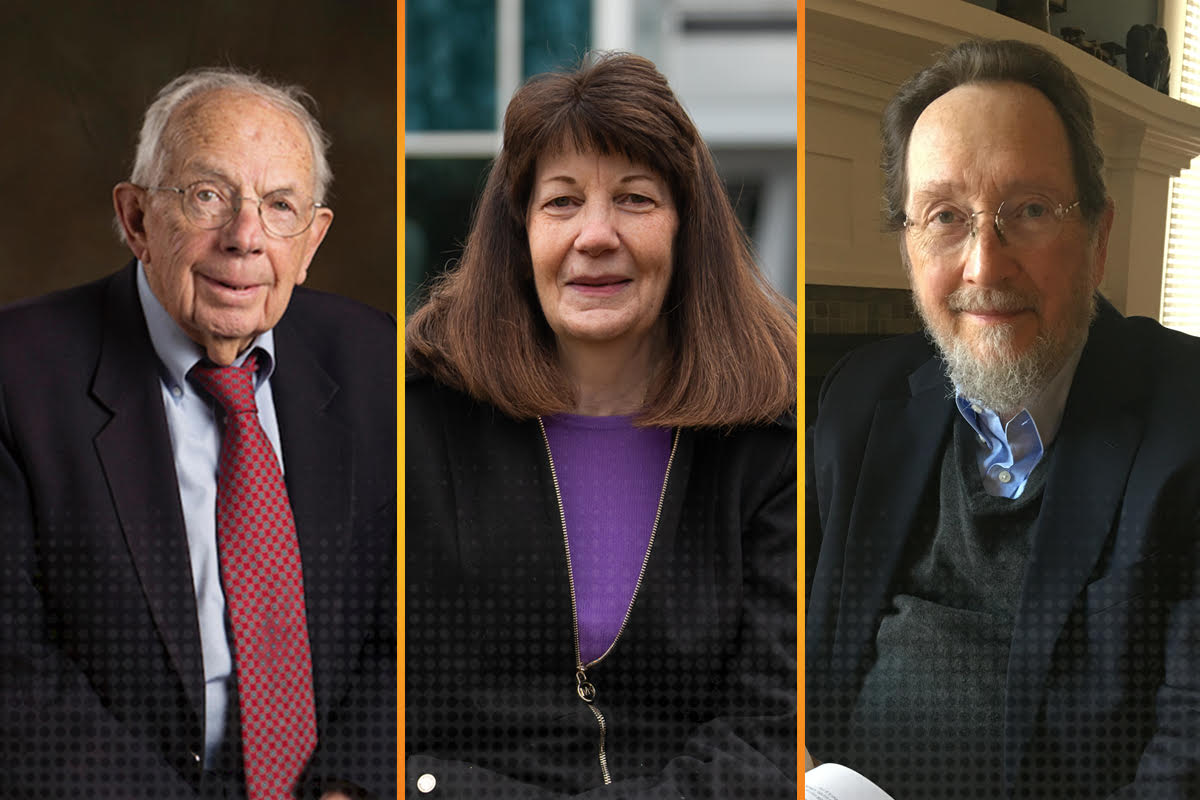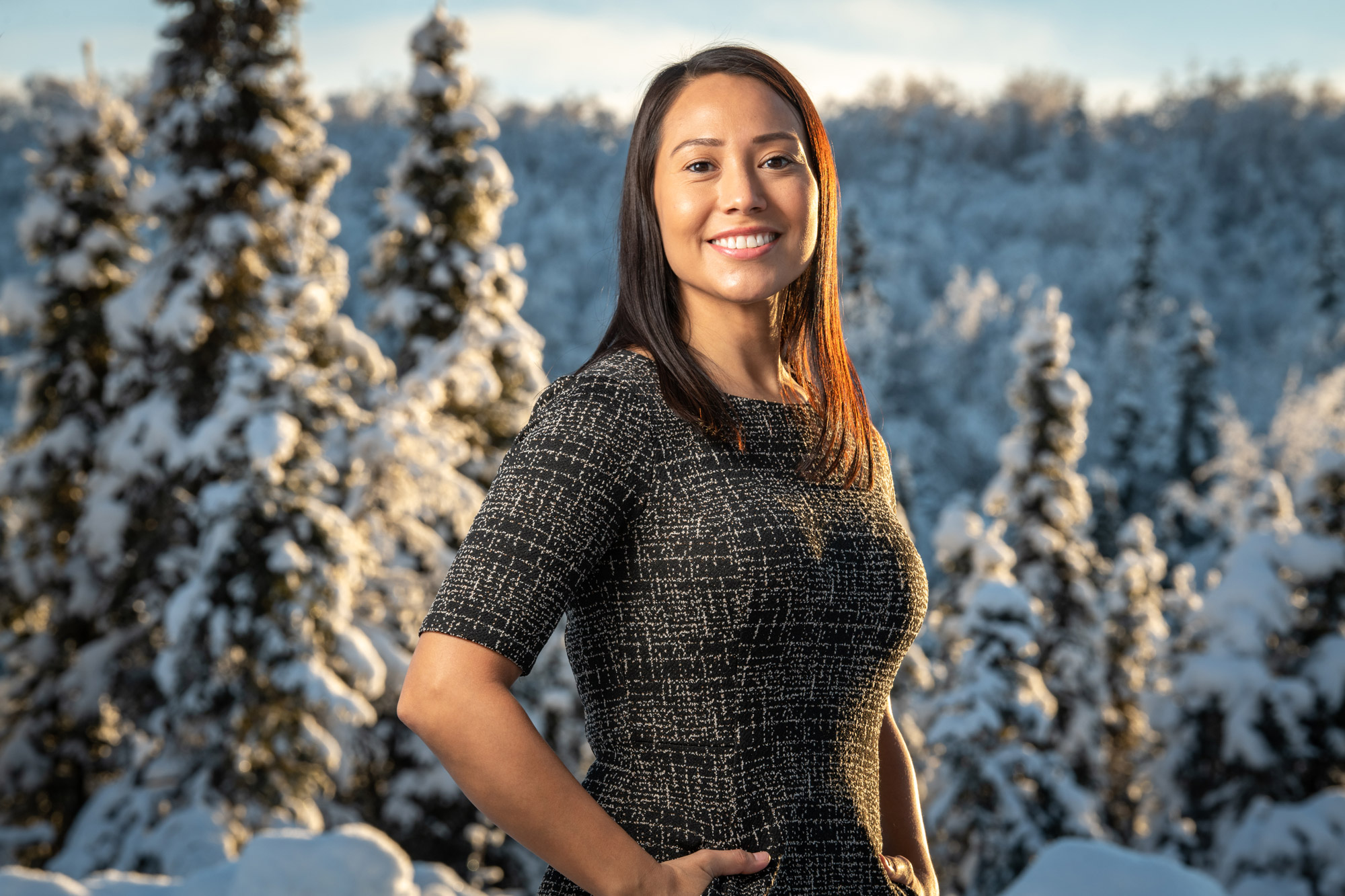Special delivery: UAA’s AHEC Scholars Program partners with Premera Blue Cross Blue Shield to deliver baby boxes
by Catalina Myers |
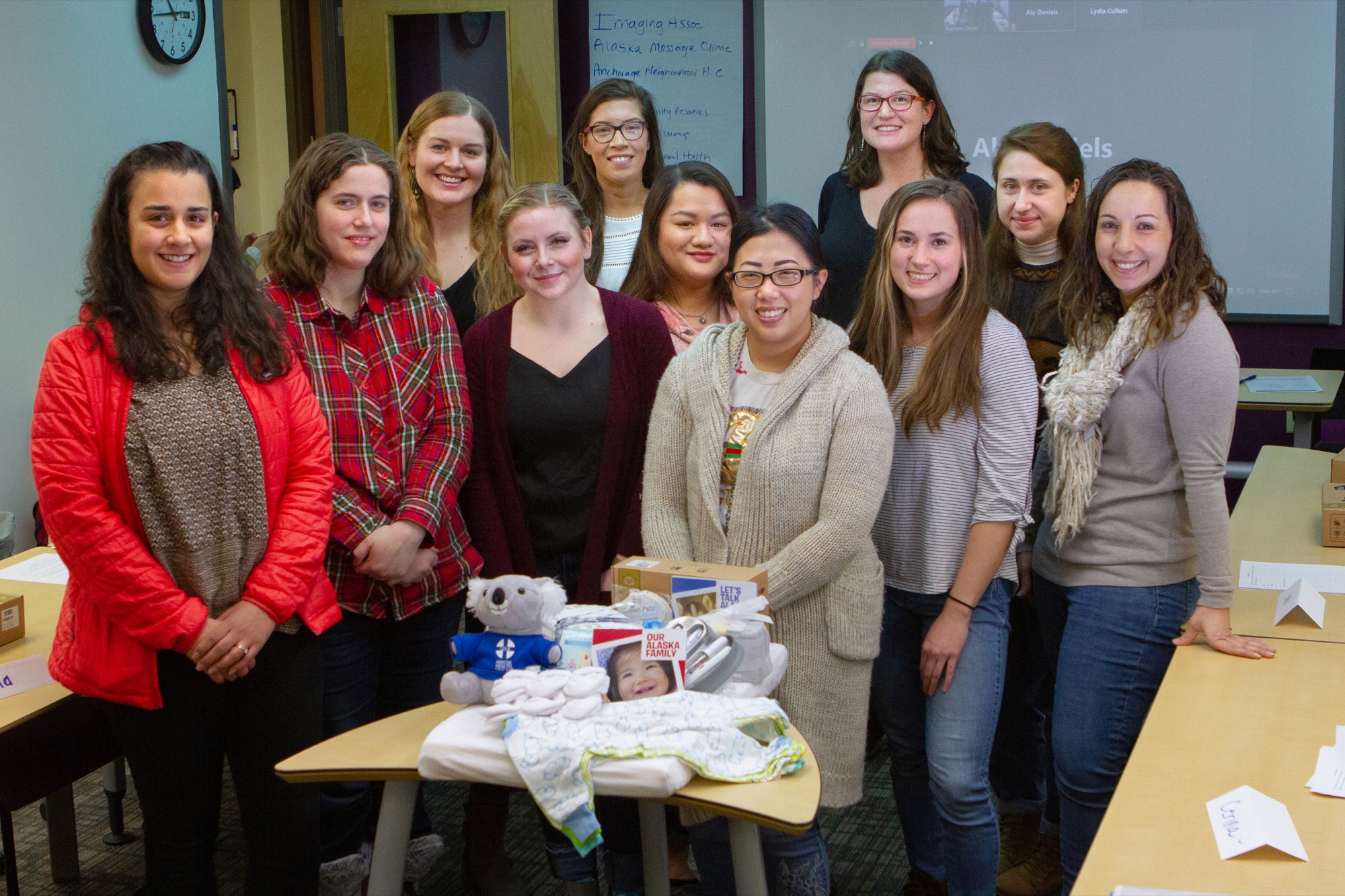
In UAA’s Bragaw Office Complex, eight women are seated around a large conference room table pulling long oblong stretchy fabric out of cardboard boxes. The women are instructed to stand, as Corrie Whitmore, assistant professor in the Department of Health Sciences, demonstrates the art of babywearing by weaving the fabric around her body and using a stuffed koala bear named “Algee” to show the correct baby placement — the top of baby’s head should be “within a kiss on the head’s reach.” The group of eight are in a “Train the Trainer” exercise in an Alaska Area Health Education Center (AHEC) Scholars Program pilot partnership with Premera Blue Cross Blue Shield to distribute baby boxes to rural communities in Alaska.
AHEC is a federally funded program through the Health Resources and Services Administration (HRSA) with the mission of increasing student interest and commitment to providing care in rural and underserved areas. There are 261 AHEC centers nationwide and six in Alaska, in addition to its Program Office in the UAA College of Health. The AHEC Scholars Program recently launched in fall 2018 as a two-year program and is in its second year, with its second cohort of students in varying health degree tracks from across the state.
“The students have to be studying in a health professions program like nursing, allied health or behavioral health to participate,” said Gloria Burnett, director of the Alaska Center for Rural Health and Health Workforce, which is where AHEC is housed. Although the program consists mainly of UAA students, Burnett said the AHEC Scholars Program is open to any healthcare student in a program statewide. “Once students are in, they commit to two years and will take part in a community-based experiential learning opportunity, which could be anything from a clinical placement to a community-based project, but the goal is to get them into a rural community to see what it would be like to practice and live there.”
Baby box delivery
Rolling off the success of year one with the AHEC Scholars Program, Burnett was looking for a way to better match students with placement sites in rural Alaska. The challenge of matching students to placement sites is difficult when coordinating many busy schedules. Burnett said she spent a lot of time trying to convince rural providers to take their students. She had an epiphany when she realized she needed to flip the narrative. After speaking with students and finding out what they were passionate and excited about, she found it was easier to match them with a rural provider.
“I started to approach the whole placement with, ‘Can we get our partners on board by finding ways for our students to contribute to these communities,’” she said. “Instead of begging them to take our students, why don’t we ask them what they need, so they’re engaging our students to help support what their community needs are.”
In addition to sharpening AHEC’s matchmaking skills, Burnett was also on the lookout for other potential partnership opportunities where AHEC Scholars could earn valuable didactic skills. She contacted the Premera Blue Cross Blue Shield Test Kitchen, a Premera team dedicated to quality improvement for their customers. Serendipitously, Premera Test Kitchen was also on the hunt for a partnership to help launch a pilot program to distribute baby boxes to new parents in rural communities to help reduce infant mortality rates.
“I was on a call discussing possible health sector innovations and Premera Test Kitchen representatives were pitching projects to try and get baby boxes distributed to rural Alaska,” said Burnett. “They weren’t sure how they were going to do it, but they had funding set aside to purchase these boxes. Immediately I thought, ‘We have students going to rural Alaska — maybe that’s something our students could do for you.’”
From there, things rolled out quickly as logistics were hammered out and boxes were ordered to be shipped to Alaska.
“We started small — we have 100 boxes to distribute,” said Burnett, opening an office door to reveal floor-to-ceiling stacks of mattresses to fit inside the baby boxes, as well as supplemental supplies. “We were able to work with Premera on what was inside the boxes, which was nice because we got to suggest items that would be relevant to Alaska's moms.”
Filling a need
Premera’s baby box program came from a need the company wanted to fill after analyzing data from their customers and noticing some troubling statistics in infant mortality in rural Alaska. For Burnett and health care professionals statewide, this is not a surprise: Infant deaths in remote Alaska communities trend higher because often the care or education that’s needed is not available, or customers are traveling great distances by plane to receive care when time is critical.
So Premera set out to create a program that would provide new parents in rural Alaska with infant education and baby boxes filled with newborn essentials, to help ease the stress on new parents and with the long term goal of decreasing infant mortality rates.
Baby boxes are not a new concept, the cardboard crib was created by Finland’s government in the 1930s with the same goal of decreasing infant mortality and providing new parents a safe, cost-effective sleep environment. After the nationwide baby box program was created figures in infant mortality changed rapidly and 90 years later, every Finnish parent receives a baby box for their newborn.
Burnett said that they put the call out to the AHEC Scholars Program year one and two cohorts to see if they had any interested students willing to be a part of Premera’s pilot program and shepard the boxes out to their remote sites when they went for their rotation and received positive feedback. They were able to bring on health sciences faculty member Whitmore to provide the group's training and tailor existing curriculum to make it more Alaska-specific.
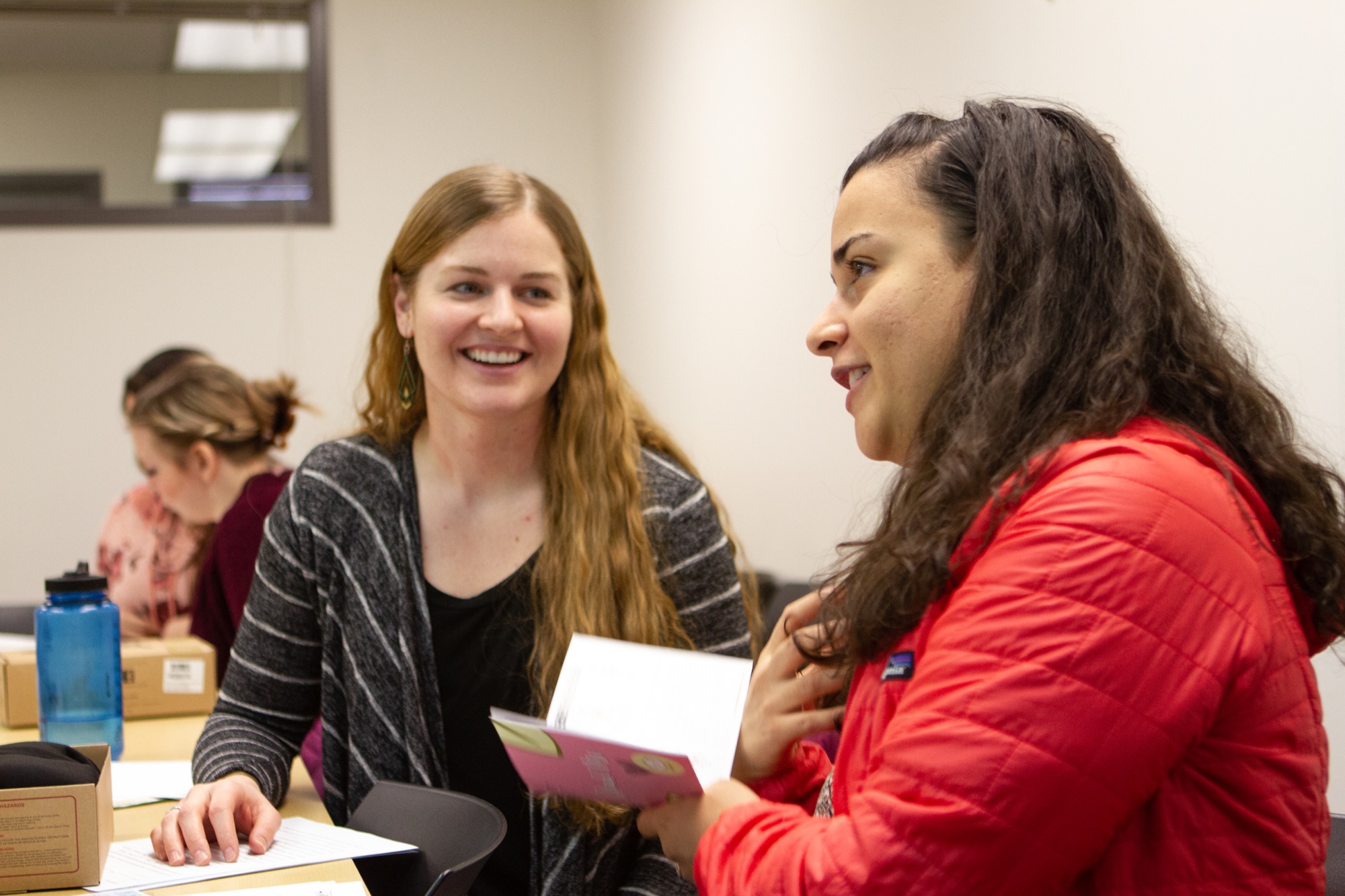
“Being a new mom is what prompted me to want to get involved and spread information about healthy sleeping habits and general baby health,” said Mariah Seater, who’s in her second year of UAA’s Master of Public Health program with the eventual goal of becoming a pediatrician. “I also know, as a new mom, how much education I didn’t get — being a college-educated graduate student — I was a bit lost. So I can only imagine what it would be like if you didn’t have those opportunities, what it must feel like.”
Once the group of eight are dispatched to their location, with training under their belts and baby boxes in their arms, they will distribute the baby boxes in the communities they will call home for about a week. For many of the students, the opportunity to apply their skills in a real-world setting is exciting, but for students like Brianna Gibbs, who’s in the final year of her clinical doctorate in occupational therapy at UAA, this opportunity adds additional richness to her educational experience.
“I want to focus on pediatrics for occupational therapy, and in school, we just learn so much how critical those first few years are for development,” said Gibbs. “I think having the opportunity to provide as many resources and support to parents as possible to not only ensure their success as parents but also the child’s success in life — I mean, why not participate in something like this? It’s so impactful.”
 "Special delivery: UAA’s AHEC Scholars Program partners with Premera Blue Cross Blue
Shield to deliver baby boxes" is licensed under a Creative Commons Attribution-NonCommercial 4.0 International License.
"Special delivery: UAA’s AHEC Scholars Program partners with Premera Blue Cross Blue
Shield to deliver baby boxes" is licensed under a Creative Commons Attribution-NonCommercial 4.0 International License.










